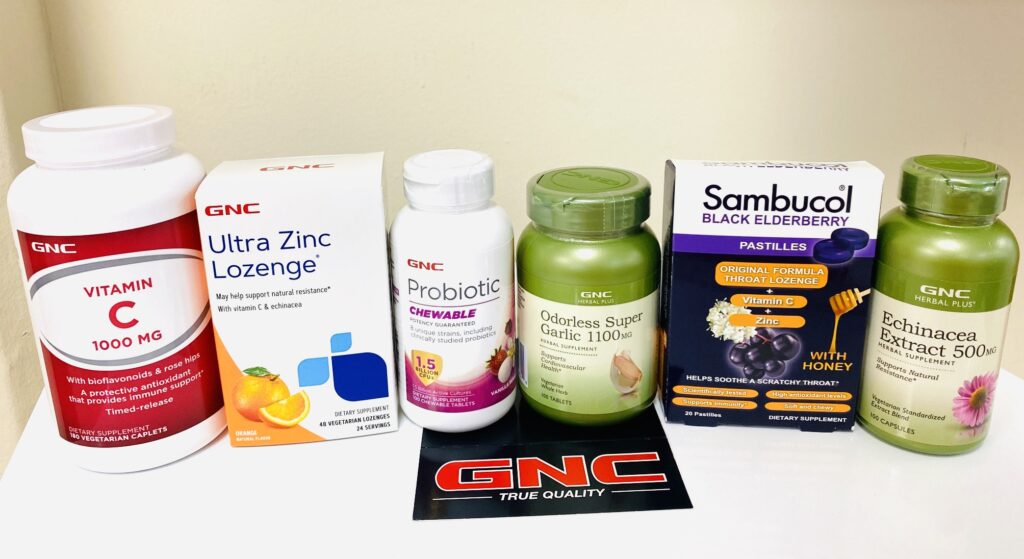
By Edward Lu (Chief Nutritionist, GNC Guam)
When the coronavirus is spreading, you may find that it’s difficult to get a bottle of vitamin C pills and there is nothing in the orange juice area at the supermarket. While you are loading up vitamin C, you actually need to think of probiotic, garlic and others as well.
Take probiotics & eat vegetables
You have probably heard that probiotics foster good bacteria in the gut and support immune defense. There is actually science behind what you heard. A randomized controlled trial of 152 subjects infected with rhinovirus showed those who took probiotic supplement for 28 days had a better immune response and lower virus levels in the nasal mucus.
A clinical study in Italy recently showed probiotics helped reduce COVID-19 symptoms in 7 days and also avoid severe illness that might require intensive care.
The study enrolled 70 COVID-19 patients, hospitalized between March 9 and April 4, 2020 at Sapienza University of Rome. These patients had a fever and required non-invasive oxygen therapy. 42 of them received hydroxychloroquine, antibiotics and tocilizumab, alone or in combination. The other group of 28 patients received the same therapy added with an oral probiotic supplement.
Around 90% of 28 patients in the “probiotic” group actually showed remission of symptoms, including diarrhea, in 3 days. The percentage reached 100% on the seventh day while the one in the control group was lower than 50%.
The estimated risk of developing respiratory failure in patients treated with the oral probiotic supplement was eight times lower than those in the control group, according to the odds ratio statistics. The prevalence of ICU usage and mortality were both higher among patients who were not treated with the probiotic formula.
Dr. Giancarlo Ceccarelli, a specialist in infectious diseases at the university, told Nutraingredients.com that “Our preliminary results evidenced on improved survival rate and a lower risk of transfer to an intensive resuscitation for patients supplemented with the probiotic compared with those on standard treatment only.”
In addition to probiotics, a 2017 animal study publish on Science reminded that, with help from good bacteria in the gut, plant flavonoids could be converted to a substance called DAT, which can activate antiviral response to significantly help mice reduce the incidence of flu.
Researchers therefore suggest that it is a great immune support plan to get more plant flavonoids from vegetables, berries, tea and chocolates, and also eat cheese, yogurt, miso, sauerkraut and kimchee or take probiotic supplements to foster good bacteria in the gut.
Garlic
Garlic is one of members in the allium family. Nutrition experts usually suggest should eat every member of this family, including onions and leeks, to help build up immunity in order to fight off common cold during fall and winter. A trial randomly assigned 146 participants to either a garlic supplement (with 180 mg of allicin) or a placebo for 12 weeks. The trial reported 24 occurrences of common cold in the garlic intervention group compared with 65 in the placebo group.
Other nutritional solutions
There are scientific researches on vitamin C, zinc, echinacea and elderberry as well. Their results usually showed benefits of reducing symptoms of upper respiratory infections and shortening the duration of colds.
To make the duration of colds shorter, nutrition experts also recommend chicken soup. It is good for avoiding dehydration. In addition, its amino acids is essential for supporting immune system. When you cook chicken soup, it is absolutely a good idea to add mushroom, carrot and celery.
